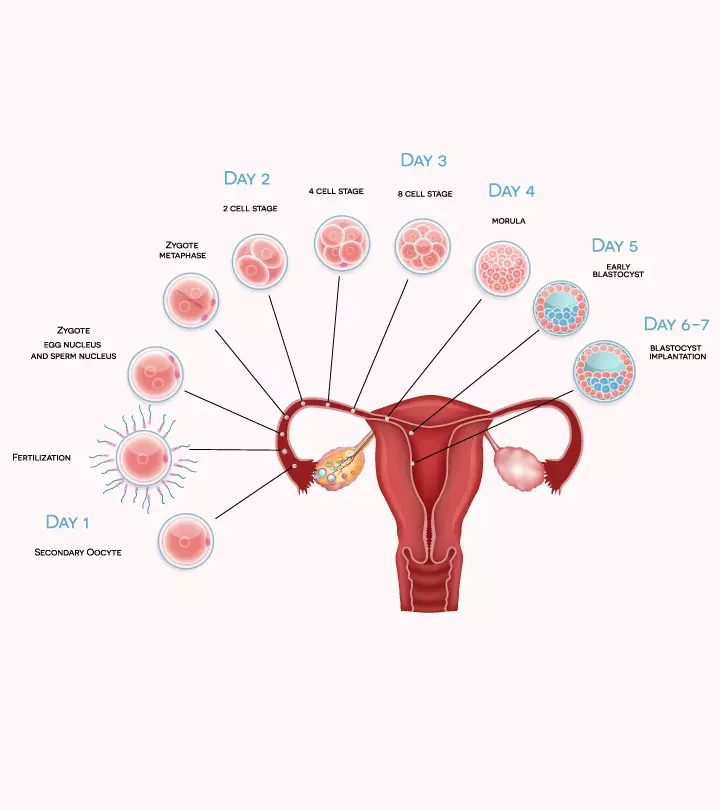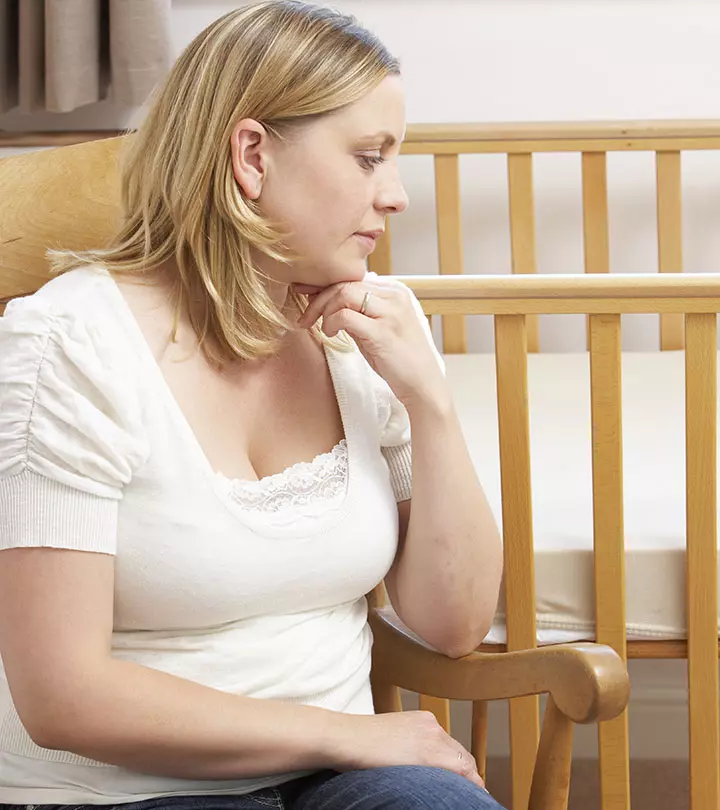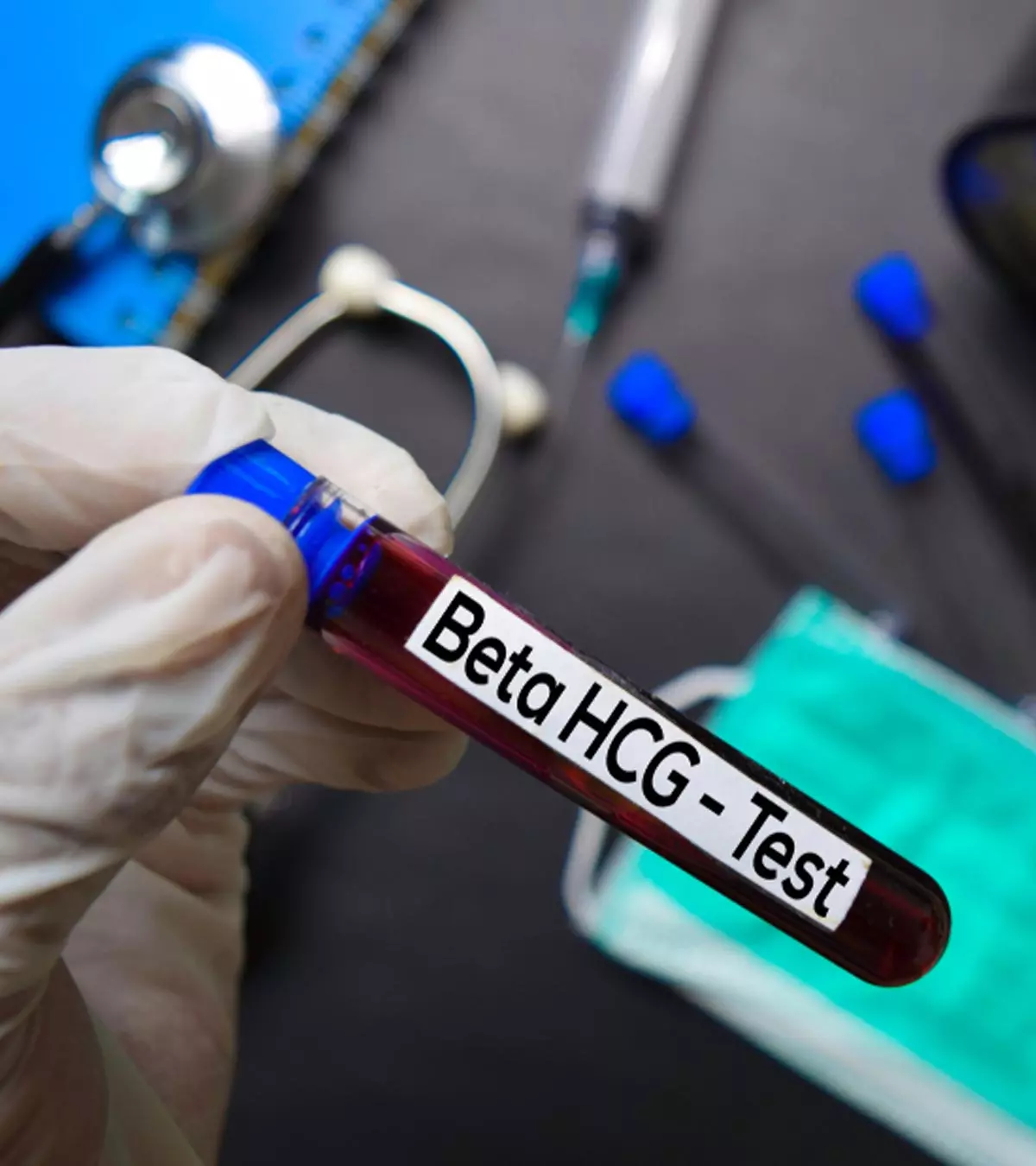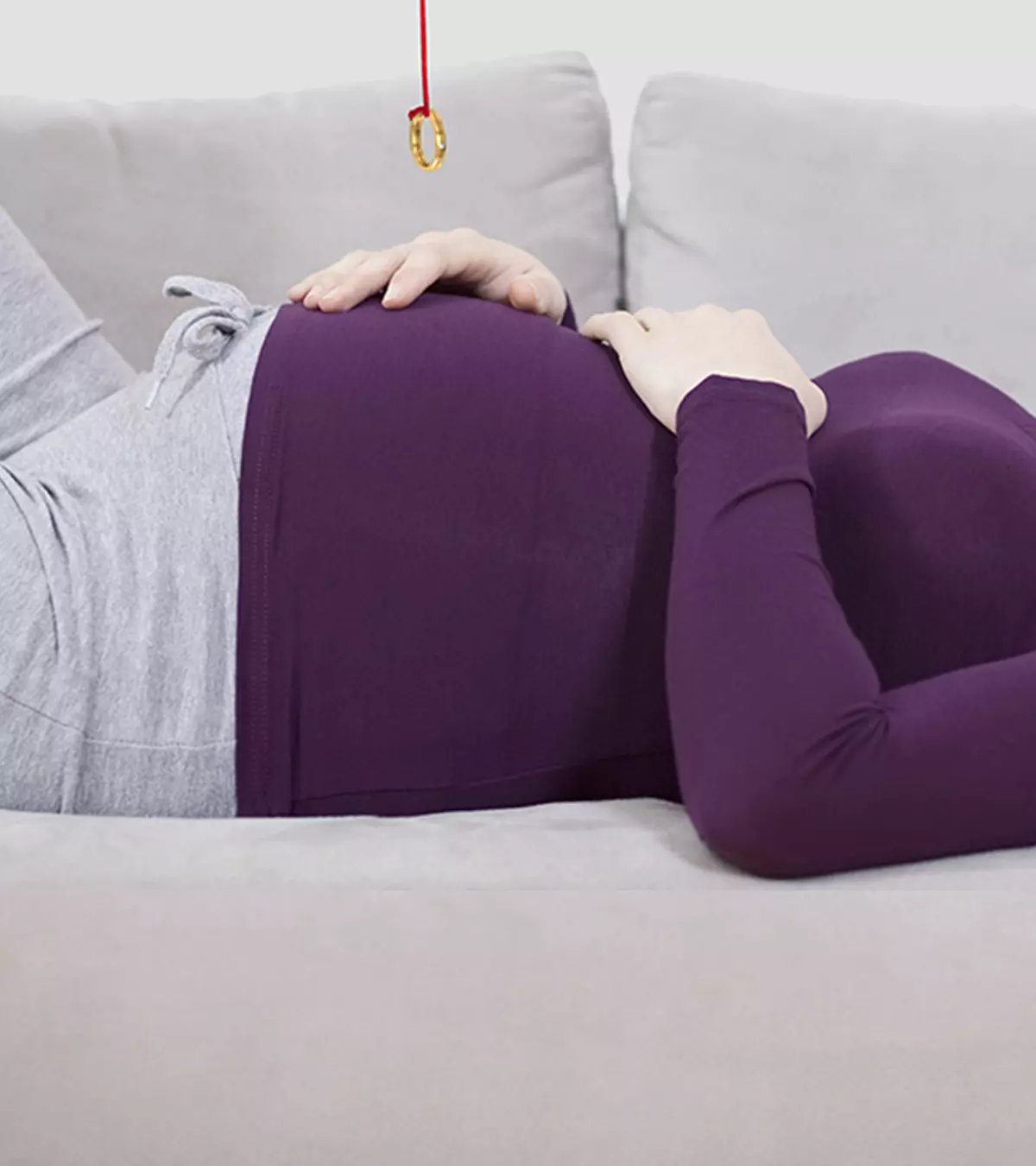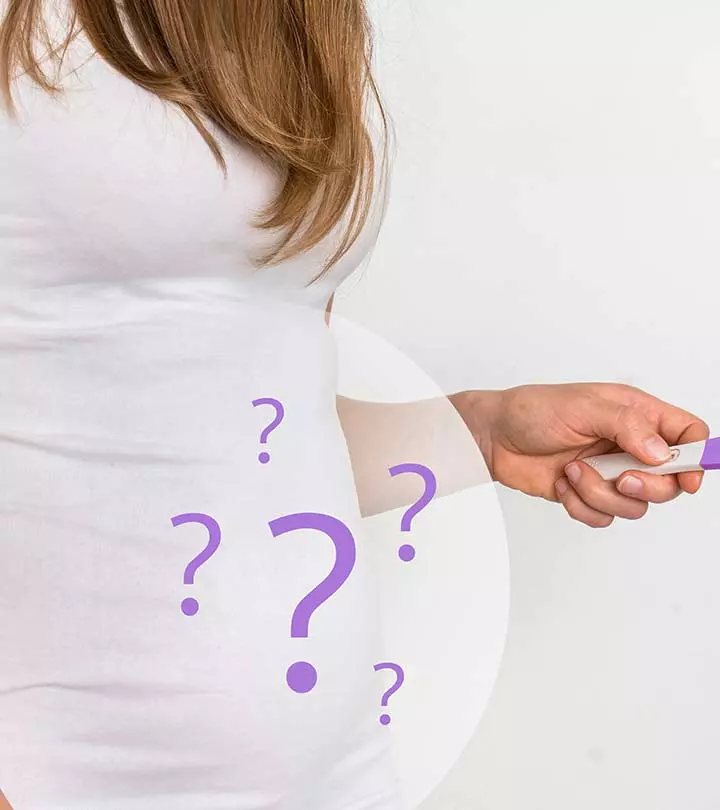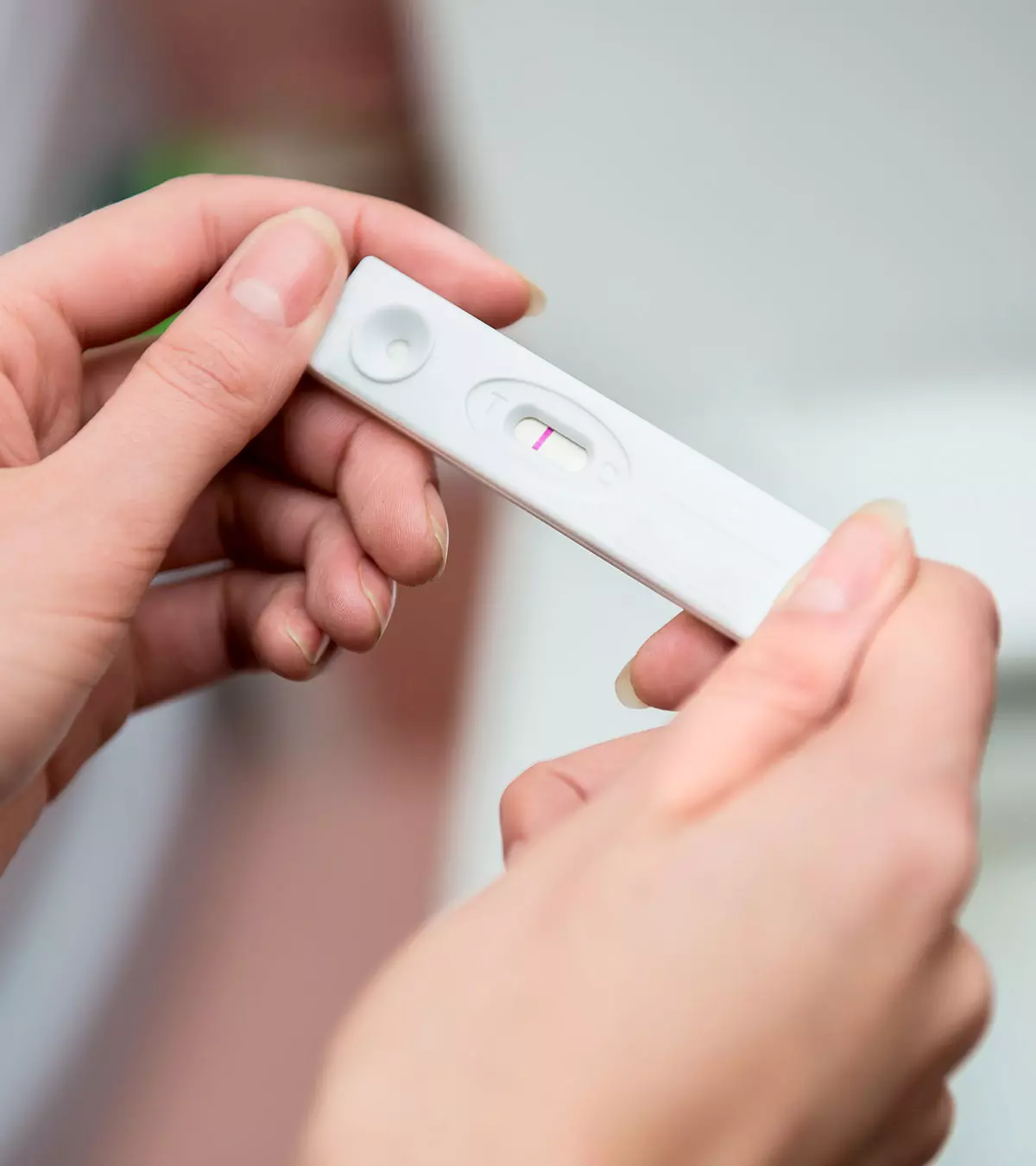
Image: Shutterstock
If you are trying to conceive and have missed your period, you may wonder when to take a pregnancy test. This post will tell you more in this context. When you are trying for a baby, missing your period might increase your hopes. But checking for it immediately using a home pregnancy test might not give accurate results, especially if you have irregular menstruation. Read on to know when is the right time to take a pregnancy test if you are trying to conceive.
Key Pointers
- Pregnancy tests detect Human chorionic gonadotropin (hCG) in the urine with about 99% accuracy.
- hCG is released after implantation and morning urine is the best for testing its presence.
- Reliable results require testing at least a week after a missed period.
- Different test kits may have different indicators of a positive test, such as two straight lines or a cross-design.
What Is A Pregnancy Test?
Pregnancy tests are designed to show if your urine contains a hormone called human chorionic gonadotrophin (hCG). This hormone is released right after the fertilized egg implants on the uterine lining and keeps doubling every two to three days (1).
You can take the pregnancy test at home or visit an OB-GYN. Home pregnancy test kits are sold in drug stores. If you take the test at home, make sure to follow all the instructions correctly.
However, if you are seeing an OB-GYN, she will test your blood sample. Blood tests are more accurate than urine tests.
When Is The Best Time To Take A Pregnancy Test?
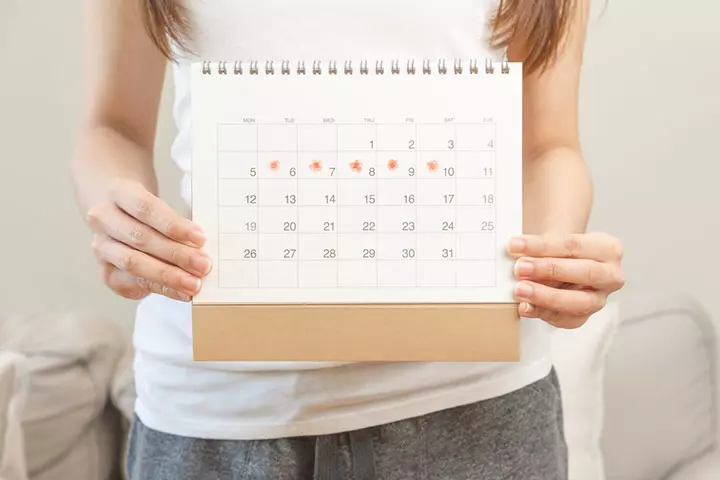
Still wondering when to take a pregnancy test? You can take a pregnancy test as soon as you miss your monthly menstrual cycle. Sometimes, it also works a few days before the period due date. As mentioned above, the pregnancy kit detects the hCG hormone produced during pregnancy. Your body may be producing this hormone even before your period due date.
However, it is too early to take the test on the days before the missed period. It may give you an inaccurate result. Even if it shows a positive result, it may not develop into a pregnancy because of spontaneous miscarriage.
Therefore, if you want to check for pregnancy after a missed period, wait for at least a day (2).
When Are Pregnancy Tests Accurate?
Home pregnancy tests hold an accuracy rate of 99% when used on the first day of the missed period and after.
The best time of the day to take a pregnancy test is in the morning when the urine is more concentrated.
The result may not be correct if you take the test too early in the menstrual month, do not use the kit properly, or if the kit has passed the expiry date.
The accuracy of the home test depends on the following factors:
- How you follow the instructions
- How soon can you take a pregnancy test
- When you ovulate and how long it takes to implant
- You cannot take it too early, but it is never too late to take a pregnancy test. It will be accurate even after several days of conception.
When Is The Best Time To Test Pregnancy (Early Symptoms)
Instead of worrying about whether or not you are pregnant, you can check for some signs of pregnancy before you go for the home test(3)
. Some of the early pregnancy symptoms are:
- Spotting or light bleeding that happens when the embryo implants itself in the uterus.
- Cramping or a strange feeling of pull in the tummy.
- Tenderness or swelling of your breasts. You will feel the discomfort and soreness when you touch them, or while wearing a bra.
- A feeling of tiredness. You will get exhausted without any apparent reason.

- A heightened sense of smell.
- A sudden change in dietary habits. You may either be interested in trying foods you were not fond of earlier or may not want to eat something that you have always loved eating.
- Awful taste in the mouth.
Evelyn, a mother of one, recalls the symptoms she experienced before realizing she was pregnant. She says, “Before I discovered I’m pregnant, I was actively attending gym and pole dance classes. Last year, during one of my pole dancing classes, I suddenly couldn’t perform the pole stunt I had previously mastered… Feeling nauseous throughout the day. It is one symptom that made me really suspicious.
“My sense of smell was heightened during the 1st trimester of my pregnancy; it’s so heightened that I can smell many things that others can’t. And I was easily irritated when I passed by hawker centers. I hated the oily cooking smell and any unpleasant smell… My face has many pimples popping out, which make my face look red and sensitive… Frankly, after I experienced these symptoms, I was 80% sure that I was pregnant (i).” Later, Evelyn did a pregnancy test, which confirmed her suspicions.
You may notice the above signs and symptoms in the first seven to ten days after ovulation. If you are not sure when you ovulated but can still notice some or all of the symptoms, then take the pregnancy test sooner than later.
But before taking the test, you should know about the various types of pregnancy tests that are available and how early pregnancy can be detected.
Urine Test
They can be done in the comfort of your home or office and with your choice of when to test. They are the most convenient and private test kits. If you were sexually active within your fertility window, you can take the test a week after missing your period.
The home test kits come with instructions which you have to follow for the most accurate results. Once you have taken the test, you can discuss the same with your doctor, depending on the results. Your doctor will perform more sensitive tests to check the status of your pregnancy.
How long will the test take to work?
You can read the result within five and ten minutes. Any lines that you notice after ten minutes could be misleading, and you can ignore them. Also, reading sooner than five minutes would give an inaccurate result.
Image – Positive and negative pregnancy test result
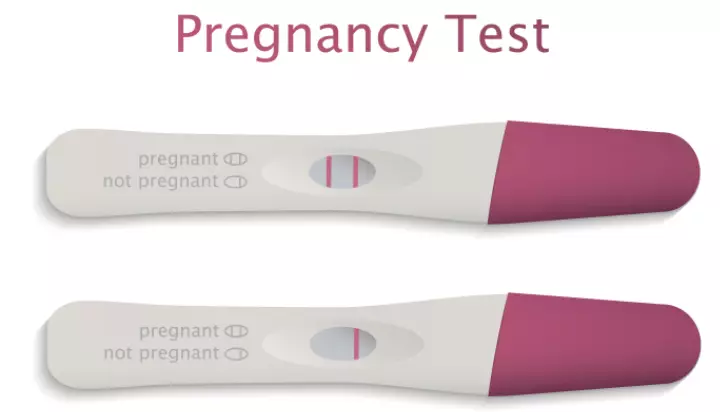
How Does A Positive Pregnancy Test Look Like?
If the test result is positive, you will notice a second line along with the control line that is already present in the test. This second line will appear after the urine sample passes through the strip.
A few tests will have two individual windows, and if it is a positive result, the lines appear in both the windows. Some other kits have a cross-design to show positive pregnancy results.
In some cases, you may not be pregnant but still, show a positive result. This is referred to as a false-positive result, which will happen due to following reasons:
- Your urine may contain blood or protein.
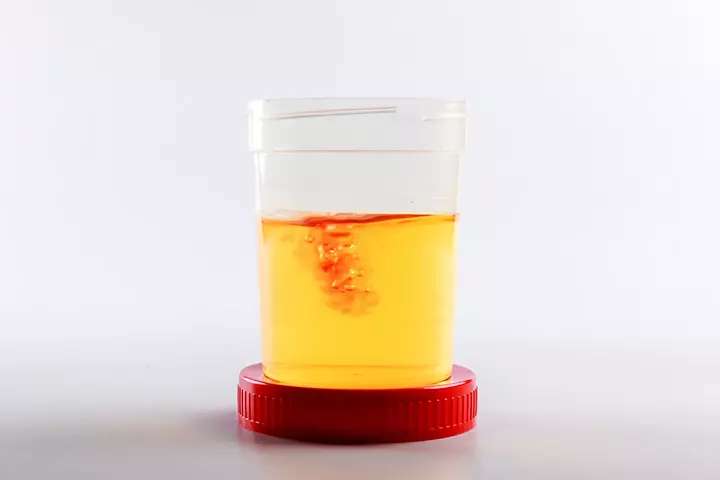
- You are on medications such as anticonvulsants, tranquilizers, and hypnotics.
- hCG may be released from the pituitary at your LH (luteinizing hormone) peak time.
- High proportions of early pregnancies would be miscarried even before the next period. Taking a test very early can detect a false pregnancy.
- There would be elevated levels of hCG hormone in women at their perimenopausal stage.
- Those undergoing infertility treatment may see a false positive result if they test within ten days of the last hCG treatment.
If you get a positive result on a home pregnancy test, consider seeing a doctor for confirmation and further testing.
 Things to know
Things to knowHow Does A Negative Pregnancy Test Look Like?
If the test result is negative, the kit displays only the control line and nothing else. You can retest about a week later to double-check.
In some cases, you may be pregnant even after you get a negative result. This is referred to as a false-negative result, which will happen due to the following reasons:
- The test kit passed its expiry date.
- You have not followed the instructions correctly.
- If the urine sample has been sitting for a long time, i.e., 30 minutes or more, it can give a false negative result.
- You test at a very early stage when enough hCG is not produced.
- Your urine is highly diluted if you have taken large amounts of fluids just before the test.
- If you are on any medications such as antihistamines and diuretics.
What Does A Faint Line On A Pregnancy Test Indicate?
Sometimes, you may see a faint line on the pregnancy test, which indicates low levels of hCG hormone in the urine sample. The reason for the line to be fainter is because the concentration of the hormone is very low in the early pregnancy. On the other hand, the line may be darker if your pregnancy has progressed enough for a higher concentration of the hormone.
Blood Tests To Confirm Pregnancy

The HCG blood pregnancy test is done at a medical center or in your doctor’s clinic. However, they are less chosen than the urine tests (4).
One advantage is that early detection of pregnancy is possible through blood tests, even as early as six to eight days after ovulation. However, they take a longer time to produce the results.
Your doctor will opt for one of the two types of blood tests:
Qualitative hCG test: It will check your blood sample for any traces of hCG, and thereby your pregnancy status. Your doctor may recommend this test ten days after a missed period. However, the qualitative hCG test can detect your levels of hCG even earlier.
Quantitative hCG test (beta-hCG): It measures the exact amount of hCG in the blood sample and can detect very low levels of the hormone in the early stages of pregnancy. It measures the concentration and thus tracks any pregnancy complications.
The test is also used in combination with other tests to rule out the possibility of an ectopic or tubal pregnancy, and to monitor your body system after a miscarriage when hCG levels fall rapidly.
 Quick fact
Quick factFrequently Asked Questions
1. Is five days after a missed period too early to test?
Five days after a missed period is not too early to do a pregnancy test. For accurate results, doctors recommend getting the test done even on the first day of your missed period (5). However, if your ovulation cycle occurred later than usual last month, you may get a false negative while testing on the first day of your missed period. Thus, the longer you wait after a missed period, the more chances you have of an accurate result (6).
2. Can I take a pregnancy test at night?
When you take a pregnancy test at night, its accuracy may be compromised since the hCG level in the urine may not be as high as in the first urine released in the morning (7).
3. Why is my period late but test negative?
Several factors can contribute to a late period, including stress, poor sleep, thyroid issues, changes in weight, excessive exercise, and certain medications. If your late period is accompanied by severe abdominal pain, dizziness, or nausea, consult your physician (6).
4. Can I test positive four days before my period?
Some pregnancy test manufacturers claim that their products are sensitive enough to detect low levels of hCG in the body and can be used four to six days before the missed period (8). However, when using a regular pregnancy test, it is recommended to wait until the first day of the missed period to get tested (5).
5. Can I be pregnant and still test negative?
It is possible to be pregnant and get a false negative result due to several factors. Testing too early or with diluted urine (not the first urine in the morning) could result in a false negative due to low hCG levels. False negative tests could also occur in ectopic pregnancies or when the test kit is defective (6).
We hope that this post helped you answer your question and doubts about when to take a pregnancy test. Home pregnancy kits are a quick and hassle-free way of testing whether or not you are pregnant, and they play a crucial role in family planning. But they might sometimes give false-positive or false-negative results as well. Therefore, it is advised that you consult a doctor and get clinical tests done for an accurate result. If you are trying to conceive, ensure that you take proper care of yourself and prepare your body well for the upcoming changes.
Infographic: What Are The Early Symptoms Of Pregnancy?
If you’ve been trying to conceive, knowing the early signs of pregnancy can help you prepare for the long journey and take necessary precautions. The below infographic highlights the early symptoms of pregnancy. Do follow up with a home pregnancy test and a blood test at the doctor’s clinic to confirm your pregnancy.

Illustration: Momjunction Design Team
Illustration: When To Take A Pregnancy Test: Early Signs

Image: Dall·E/MomJunction Design Team
Discover the ideal timing for a pregnancy test in this informative video, guiding you towards clarity and certainty.
Personal Experience: Source
MomJunction articles include first-hand experiences to provide you with better insights through real-life narratives. Here are the sources of personal accounts referenced in this article.
i. My pregnancy diary 1 – Pregnancy test and symptoms.https://twentysixoctober.blogspot.com/2015/03/my-pregnancy-diary-1-pregnancy-test-and.html
References
- T Chard; (1992); Pregnancy tests: a review.
https://pubmed.ncbi.nlm.nih.gov/1639991/ - Pregnancy Tests.
https://womenshealth.gov/a-z-topics/pregnancy-tests - Expecting A Baby?
https://www.nhs.uk/pregnancy/trying-for-a-baby/signs-and-symptoms-of-pregnancy/ - Pregnancy Test.
https://medlineplus.gov/ency/article/003432.htm - Doing a pregnancy test.
https://www.nhs.uk/pregnancy/trying-for-a-baby/doing-a-pregnancy-test/ - I Have No Period and a Negative Pregnancy Test — Now What?
https://www.unplannedparenthood.org/negative-pregnancy-test-but-no-period-now-what/ - Tips for Taking a Pregnancy Test Correctly.
https://www.thesource.org/post/tips-for-taking-a-pregnancy-test-correctly - How early can home pregnancy tests show positive results?
https://utswmed.org/medblog/home-pregnancy-tests/ - Causes of a False Positive Pregnancy Test.
https://health.clevelandclinic.org/false-positive-pregnancy-test - HCG blood test – quantitative.
https://www.mountsinai.org/health-library/tests/hcg-blood-test-quantitative#
Community Experiences
Join the conversation and become a part of our nurturing community! Share your stories, experiences, and insights to connect with fellow parents.
Read full bio of Dr. Asmita Kaundal
Read full bio of Rebecca Malachi
Read full bio of Swati Patwal
Read full bio of Dr. Joyani Das





